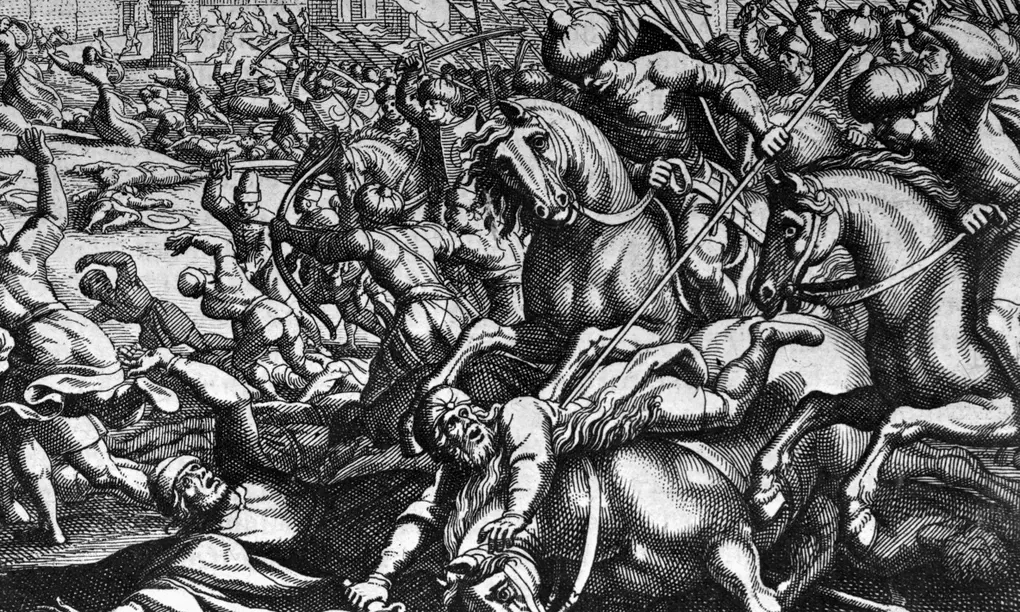A review

Doerr’s latest novel is his first since the Pulitzer Prize winning All the Light We Cannot See. That book was a particularly happy accident for me. I found it lying around the house, and knew nothing about it, so began it with no expectations. After about thirty pages or so, I knew I was dealing with something special. I browsed this new one in Waterstones in the run up to Christmas and rejected it. It just didn’t sound like my cup of tea: three separate stories spanning several hundred years, including a sci fi section, all linked together by a fictional fragment of a Ancient Greek text. No, thank you very much, I’ll pass on that.

How wrong I was. This is a singularly brilliant novel, one of the best I’ve read for years. Each section is perfectly realised: the stories of two of the little people on opposite sides of the siege of Constantinople in 1453 (pictured right) , Omeir and Anna is beautifully done in luminous prose. I’ve read some criticisms about the sentimentality and implausibility of this story, but you would have to have a heart of stone not to be moved by the outcome, after years of hardship and personal tragedy.
The contemporary section, which tells the story of a teenage eco-terrorist bomber, who is “radicalised” by a shadowy online presence that exploits his vulnerability and his disbelief at what we are doing to our planet, is the starting point for the whole novel. Each section as it is threaded through the bigger narrative, slowly ratchets up the tension of the unexploded bomb in his rucksack at the local library. The library is empty except for a group of young teenagers who are rehearsing a theatre production of the Ancient Greek text, Cloud Cuckoo Land, that holds the whole thing together.
The links extend to the sci-fi section that is set in a spaceship of humans escaping a world destroyed by global warming. You might think that such a variety of settings would jar, and that the author would naturally display a weakness in the realisation of at least one of the stories, but the reverse is true. There is no sense that, in fact, these are three entirely sparate stories that have been clumsily welded together. The whole thing feels seamless, with each section being part of an organic whole. The plotting, linking all of these disparate parts is exquisitely done. Improbable, but done with authority, credibility and artistic integrity. Each section enhances the others, and the sequencing and pacing of the sections turns a heavy weight literary novel of ideas into a page-turner of real dramatic power.

A further structural embellishment is the regular punctuation of the text with extracts from the fictitious Ancient Greek “novel” by the classical writer, Antonius Diogenes. (pictured left) Each extract is short, with the gaps in the text, supposedly produced by the passage of time, represented by missing words, scholarly guesses and question marks. For a while, these sections work well. They are strangely poetic and they are a welcome pause for the reader, providing an opportunity to digest the main sections of the overall narrative. After a while, however, I must admit that I began to skim read these bits, but that was because I was so invested in the main story, I really wanted to press on to get to the resolution of the whole thing. So even the weakest aspect of the book is actually an indication of its great strength.
Doerr himself describes the book as “my attempt at a literary-sci-fi-young-adult-historical-morality novel”. Guess what? He succeeds. It reaffirms the value and power of literature as a cultural endeavour that is capable of producing great beauty and great insight. Immersive, big stories like this that tell us something about ourselves and our world continue to be important. In many ways, the book is very explicit about that. It is a celebration of the significance of stories, of texts, (like the imaginary Cloud Cuckoo Land of Diogenes) and their ability to endure over the centuries so that they continue to speak to people in the future.
Literature, and story-telling in general, does a lot of cultural heavy lifting in our society, whether it’s a comic, a novel, a movie or the latest Netflix series. It can soothe, entertain, reassure, divert, excite. At its best, it can illuminate and make you see the world afresh, while doing all of the above as well.
Cloud Cuckoo Land is literature at its best.